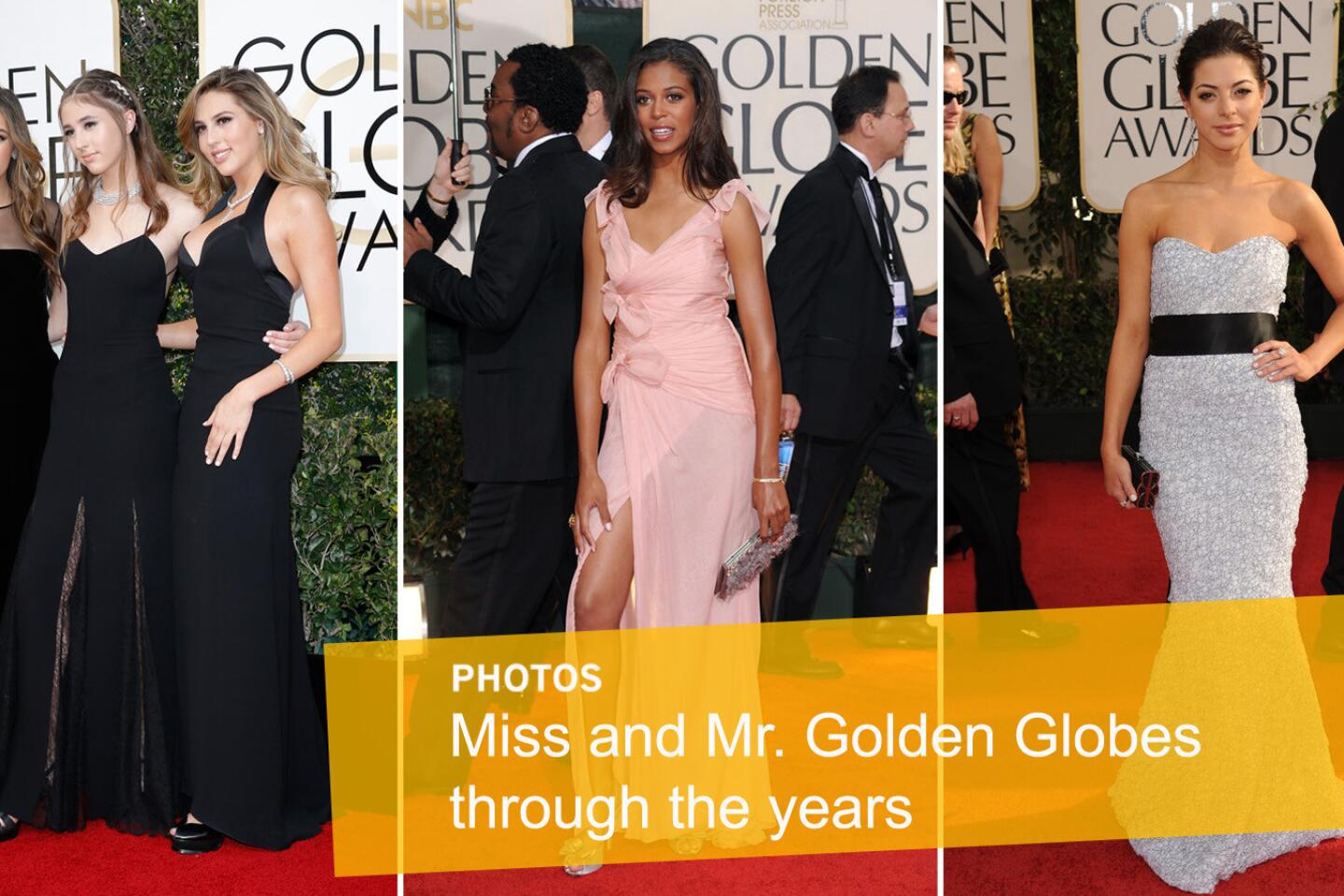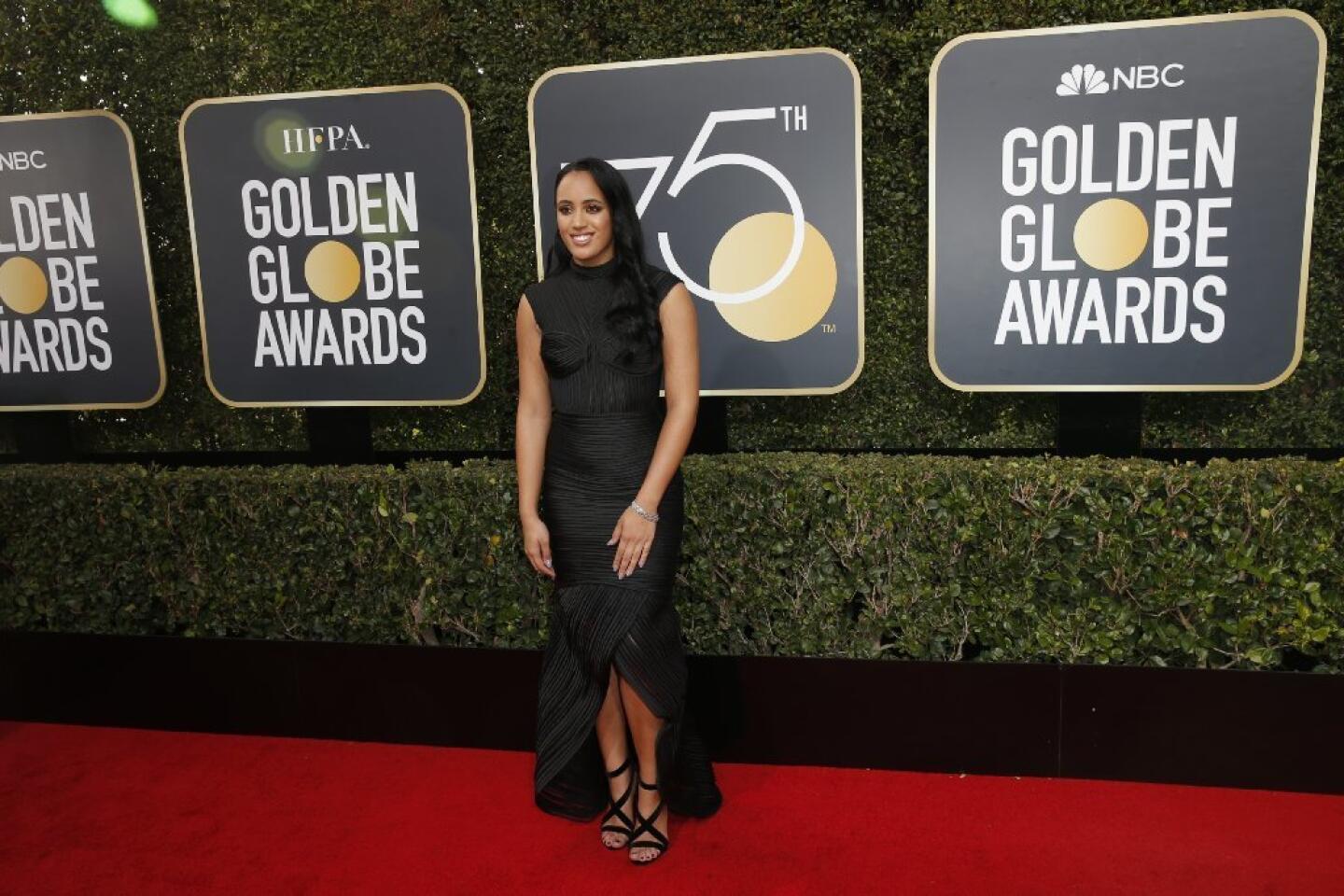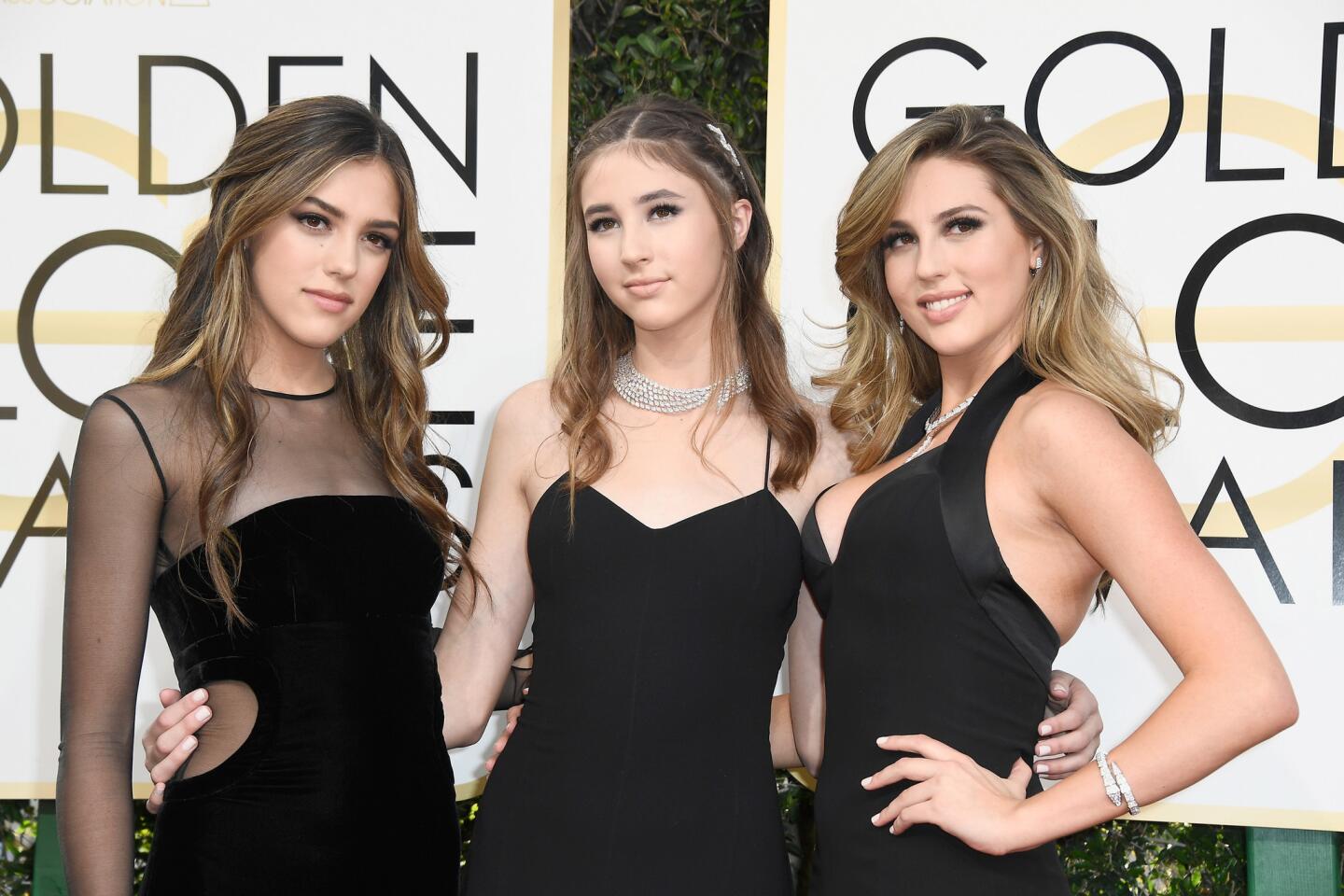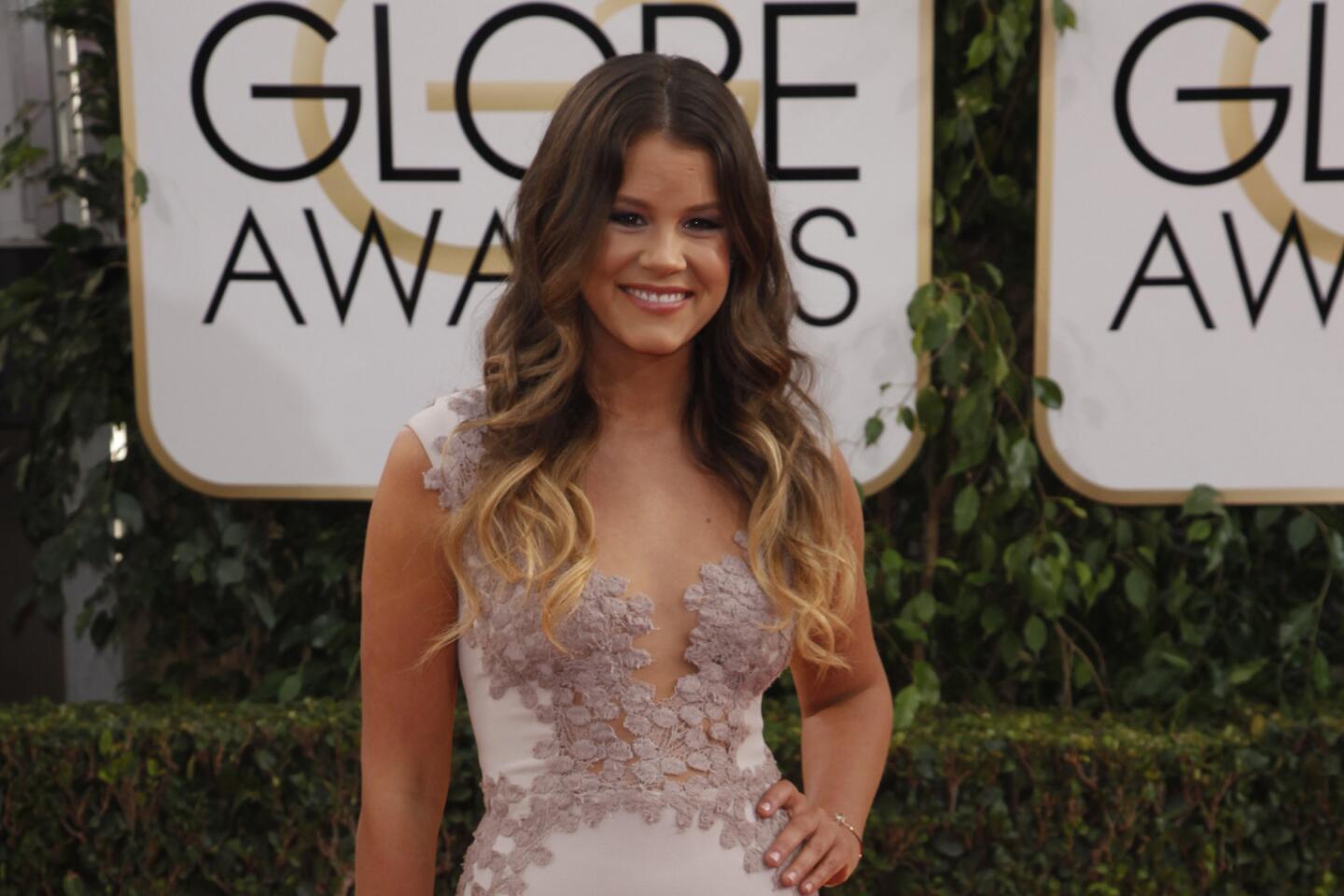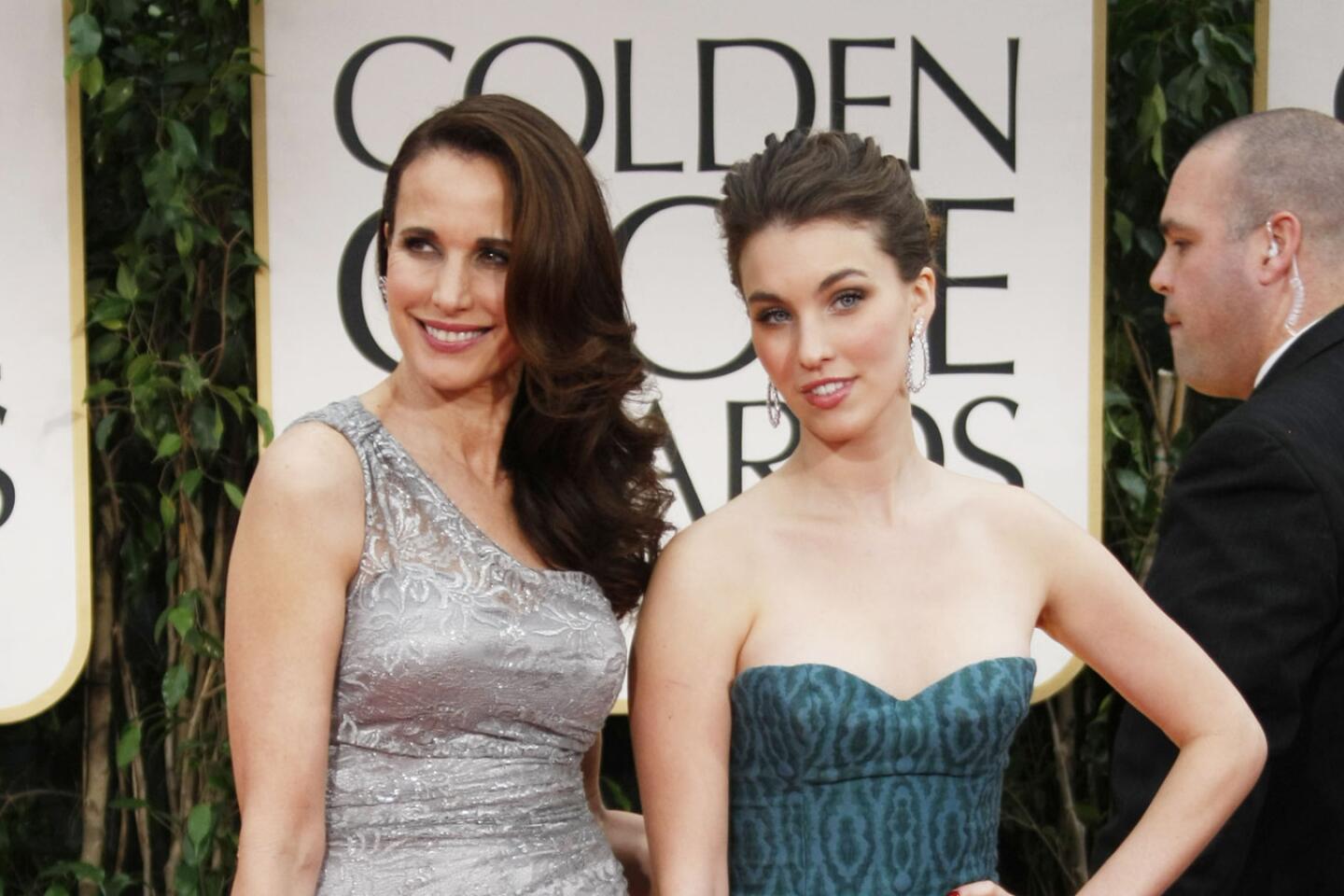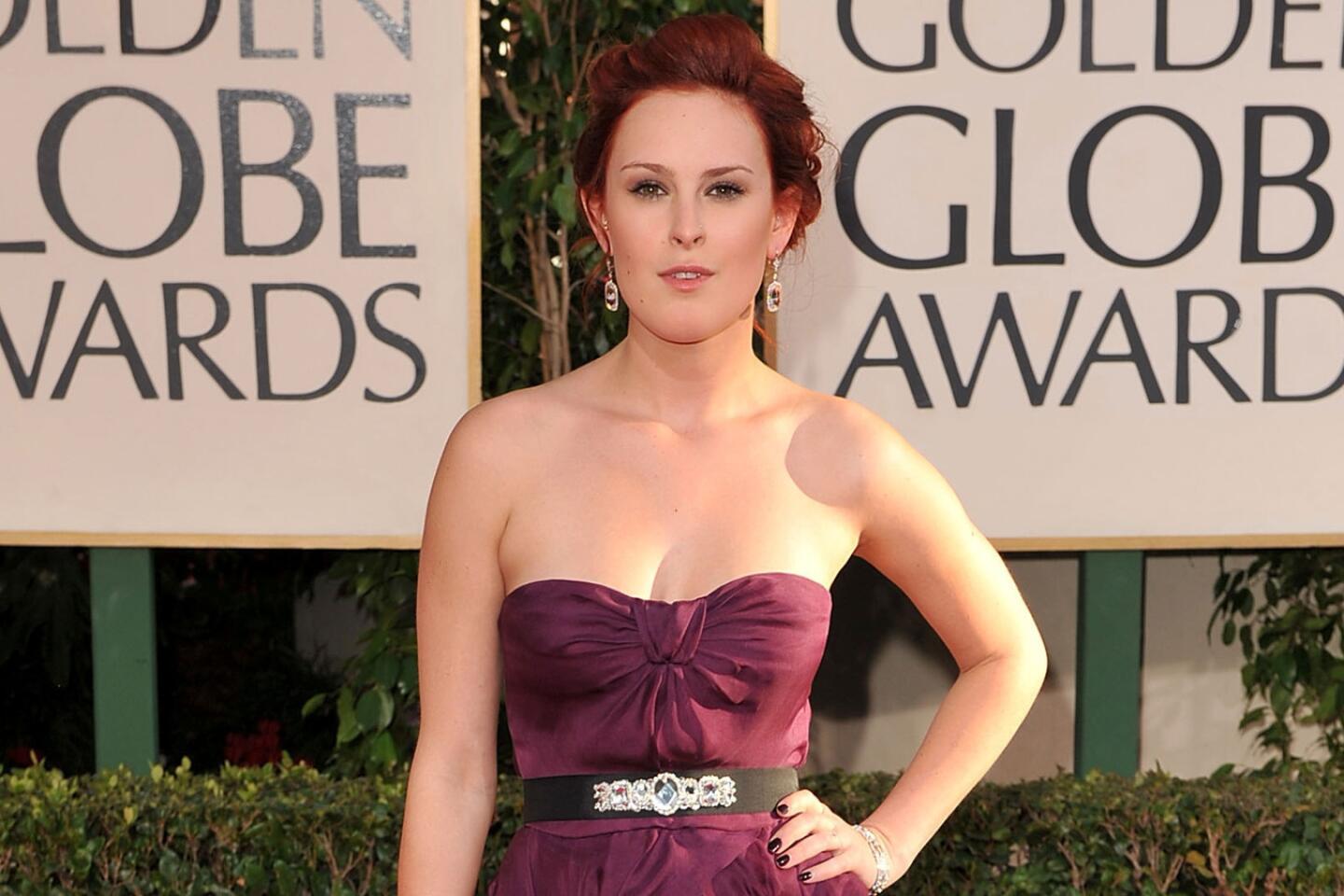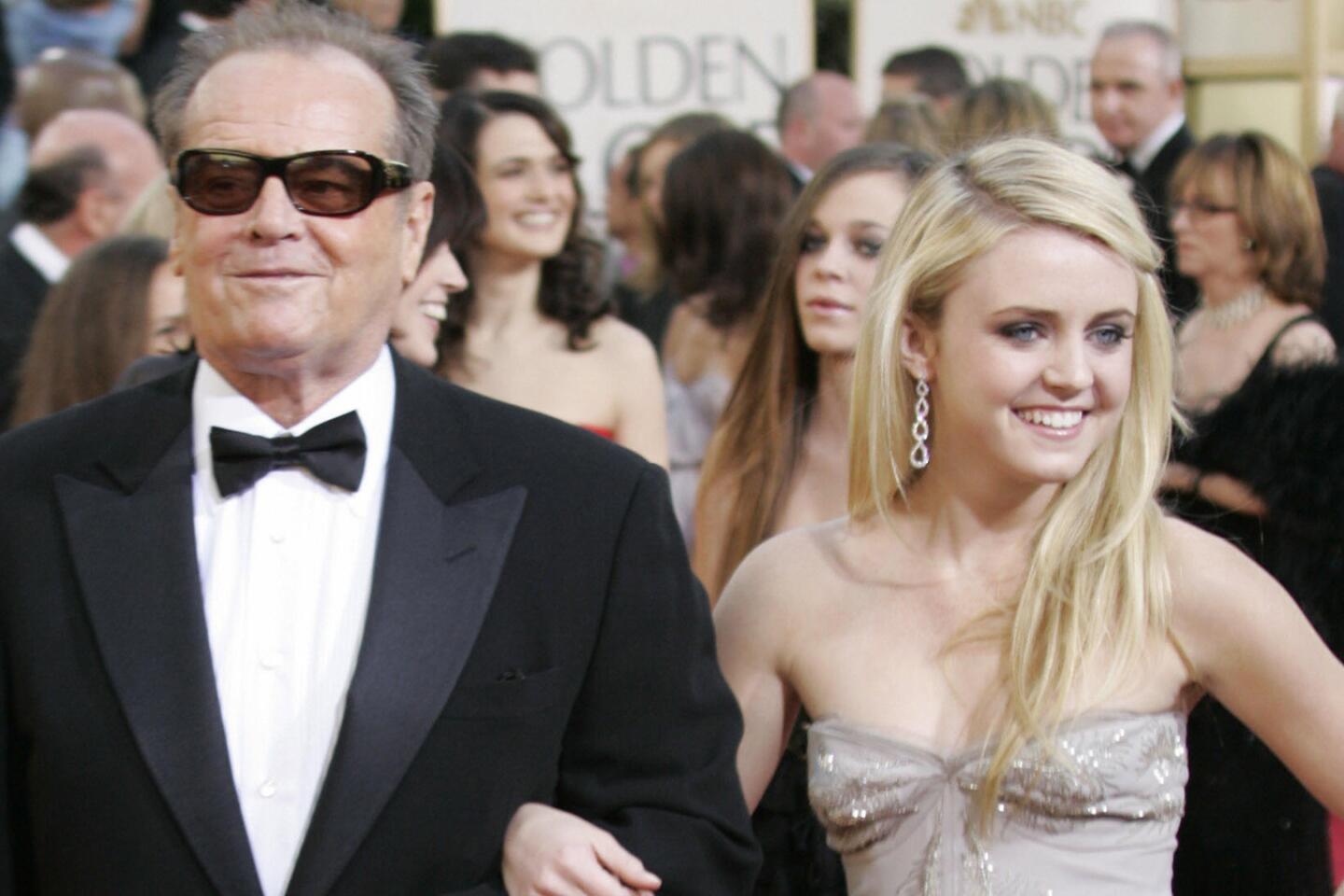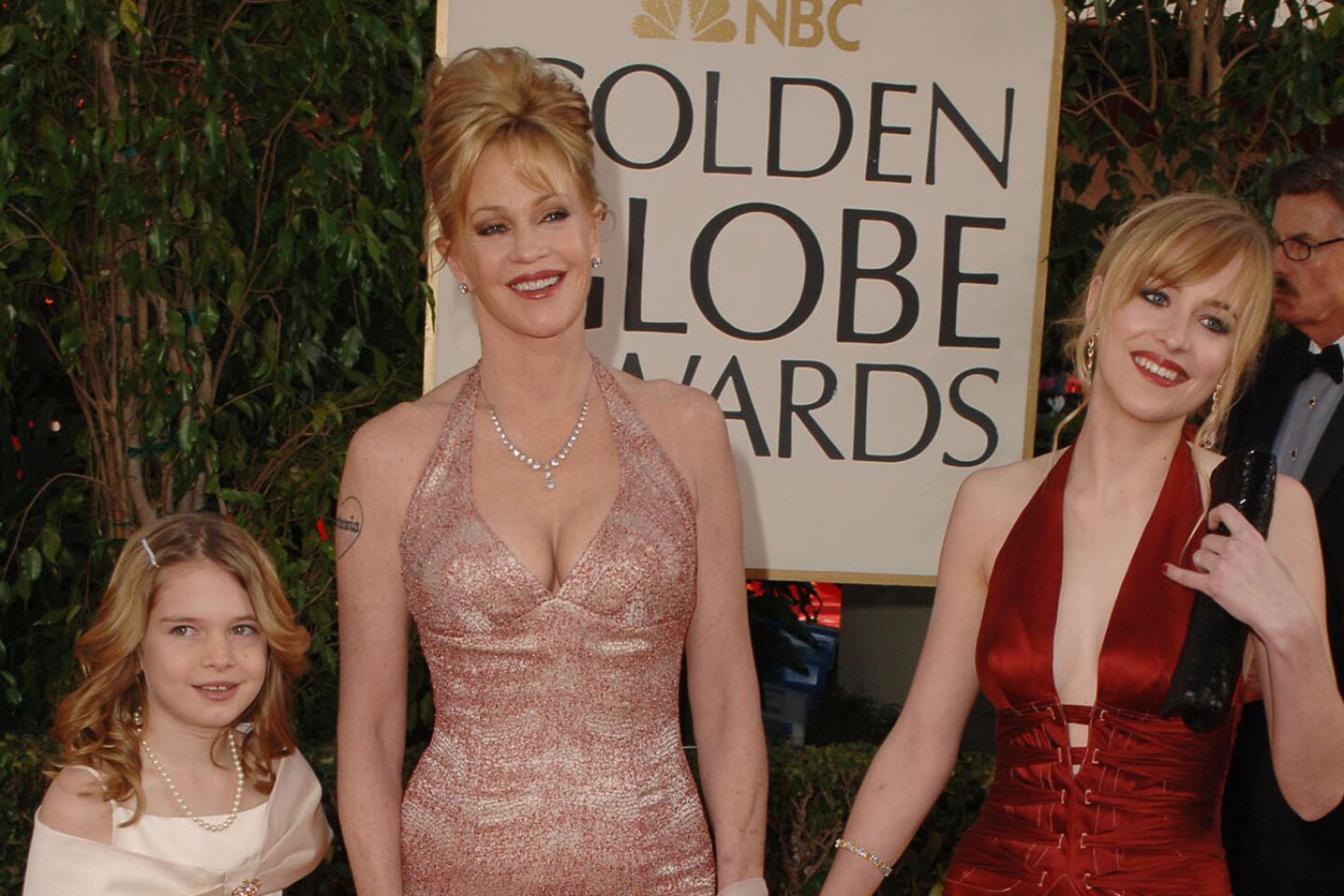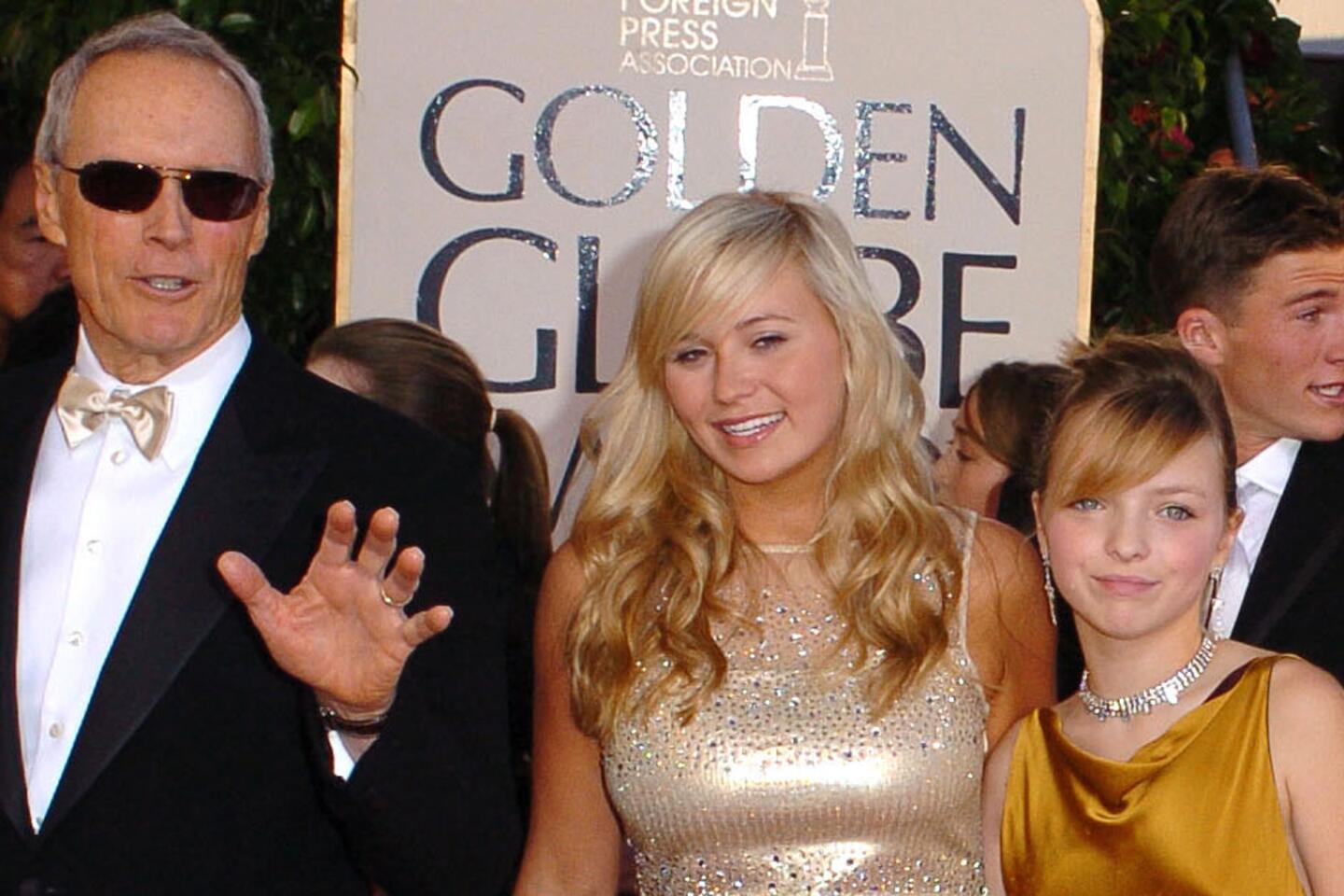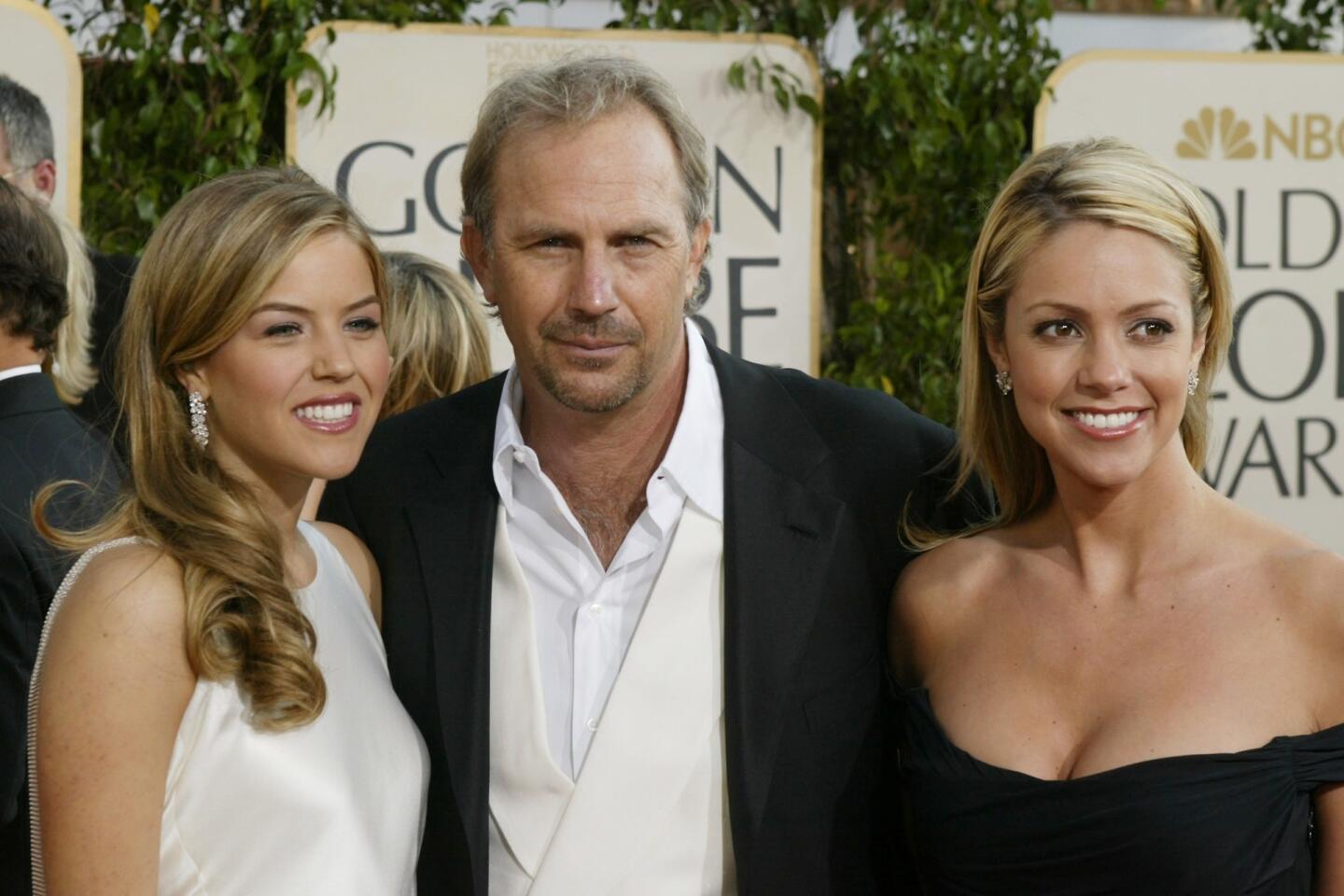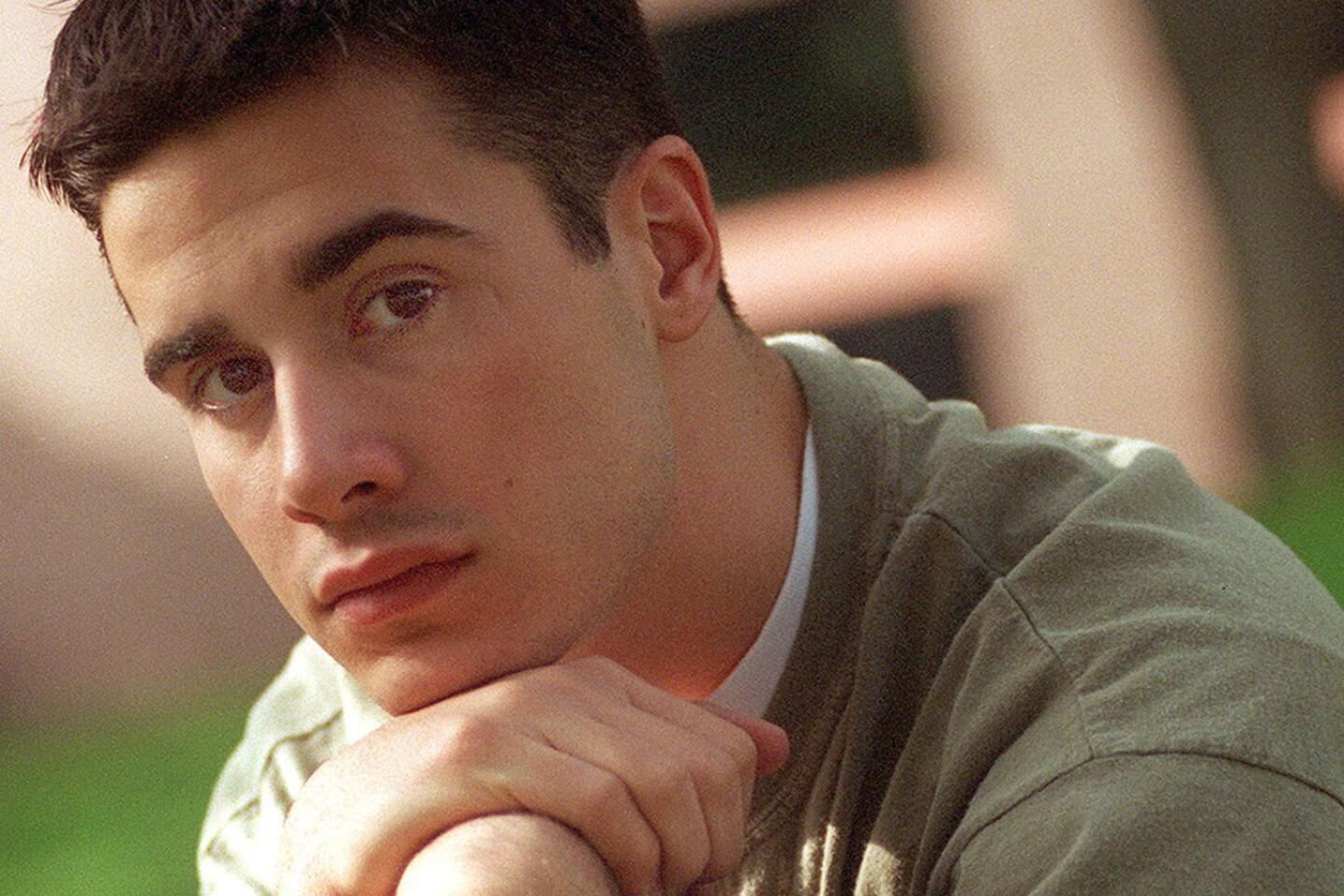For Golden Globes, defining what is a comedy is serious business
- Share via
A spiteful, drug-addicted matriarch with mouth cancer can’t find her husband. A folk singer has nowhere to sleep and few paying gigs. A depressive alcoholic thinks he’s won some money, but he hasn’t.
If these plots don’t sound comical, well, you must not have a flexible enough funny bone.
Several films currently or soon to be in theaters stretch the definition of comedy, straddling humor and drama in a fashion rare to see in today’s Hollywood movies, where stories typically fall into neat, salable categories.
VIDEO: ‘Nebraska’ cast, crew discuss film
“I tell people it’s a screwball tragedy,” said Oscar Isaac, who plays the title character in Joel and Ethan Coen’s “Inside Llewyn Davis,” a movie about not making it in the 1961 New York folk music scene. “When I first read the script I thought, ‘Why am I laughing at someone trying to survive, someone struggling like this? Is it because I’m sadistic, or because I’m relieved it’s not me?’”
Tragi-comedies like John Wells’ adaptation of Tracy Letts’ Pulitzer Prize-winning play “August: Osage County,” Alexander Payne’s black-and-white family road film “Nebraska” and Ben Stiller’s fantasy adventure “The Secret Life of Walter Mitty” better reflect the happy-sad realities of life than broad comedies and straight dramas do, their makers say.
But they also create dilemmas for marketers, and for the groups that confer awards this time of year.
The Hollywood Foreign Press Assn., which will be announcing its nominees for the Golden Globe Awards on Thursday, splits its best picture, actor and actress prizes into the categories of drama and musical/comedy.
Though it’s common to separate the genres in TV awards, the Globes are relatively unique in doing so in film, and the best picture/comedy or musical category has tended to reward starry movies that get left out of the drama-centric Oscar race, such as crowd-pleasers “The Devil Wears Prada” and “Love Actually,” or outright critical duds like the 2010 Johnny Depp romantic comedy “The Tourist.”
VIDEO: ‘August: Osage County’ cast, crew discuss film
This year, however, the comedy categories are pretty rich.
“Studios usually want to be in the comedy category cause it’s easier, but this year comedy is quite competitive,” said Marlene Von Arx, chairwoman of the association’s eligibility committee.
Sony Pictures submitted David O. Russell’s crime-caper film “American Hustle” for consideration in the Globes’ drama categories, but after the eligibility committee sat through a laugh-filled screening of the movie, which stars Christian Bale as a gifted con man with a formidable hairpiece, it was reclassified under comedy.
“August: Osage County,” “Nebraska,” “The Secret Life of Walter Mitty,” plus Martin Scorsese’s “The Wolf of Wall Street,” Spike Jonze’s “Her” and Nicole Holofcener’s “Enough Said” will compete in the comedy category, though each to one degree or another has dramatic elements. (The drama contenders include “12 Years a Slave,” “Captain Phillips,” “Lee Daniels’ The Butler” and “Saving Mr. Banks.”)
Many of the filmmakers behind this year’s bumper crop of dramedies say they were influenced by a golden age in the form in the 1970s and early ‘80s, when Hollywood was churning out tonally nuanced movies such as “Network,” “Being There” and “Terms of Endearment.” More recently that kind of subtlety has been the province of cable television, on such shows as “Breaking Bad” and “Nurse Jackie.”
PHOTOS: Billion-dollar movie club
“There used to be a lot more freedom for a movie to just be what it was,” said Stiller. “It has serious moments, it has funny moments.... Over the years it got delineated more, maybe it’s the expectations of an audience, maybe it’s the box office success of certain movies, maybe it’s just the way the business has changed in terms of what movies make money. It’s easier to sell movies that are very easily definable, and so they’re easier to get made.”
Nevertheless, many hybrid-style movies did get made this year. “Nebraska” leavens the often sad story of aging Midwesterner Woody Grant (Bruce Dern) with tart lines of dialogue from his wife, played by June Squibb, and a caper-like scene where Woody’s sons (Will Forte and Bob Odenkirk) attempt to avenge a wrong against their father.
“You need to send the audience signals that this is the scale we’re working on and you have to listen closely and you’ll be rewarded,” Odenkirk said. “If the film was louder or faster or more hyperactive you wouldn’t be able to do the subtle, small things. But when I’m telling my family or anybody about it, I have to keep saying, ‘It’s really funny,’ cause when you tell them it’s in black and white they think they’re going to get some kind of science lecture.”
Often filmmakers working in a comedic gray area must be aware of audience expectations. On the relationship dramedy “Enough Said,” Holofcener was careful with how she used her star, Julia Louis-Dreyfus, who is best known for playing Elaine in “Seinfeld.”
“Julia and I would work on what was too broad,” Holofcener said. “We were always kind of measuring it. There’s the ‘Seinfeld’ version, now what is our version? We tried so many different ways to find what felt real.”
PHOTOS: Celebrities by The Times
On “August: Osage County,” Wells tackled a different set of assumptions in adapting a darkly humorous, Oklahoma-set play that had been loved and admired by its audience of live theatergoers but would be unknown to most at the multiplex.
“My worry when we started testing the film was that people wouldn’t understand it was a comedy,” Wells said. “The setting itself was so austere.”
Wells said after testing the film he decided to lengthen certain scenes, such as one in which Chris Cooper delivers a long, meandering grace at a dinner table, so that every line could be heard over the audience’s laughter.
“You want people to know they have permission to laugh,” Wells said. “Most people do not live their lives in a state of earnest dramatic contemplation of how dark our lives are. When you’re talking about a family in crisis, the humor is what gets you through.”
More to Read
Only good movies
Get the Indie Focus newsletter, Mark Olsen's weekly guide to the world of cinema.
You may occasionally receive promotional content from the Los Angeles Times.
